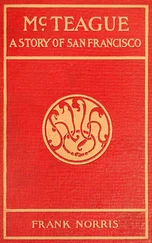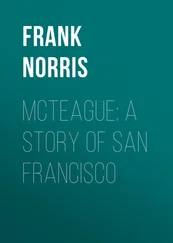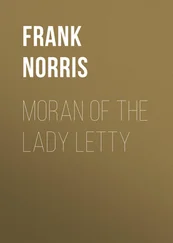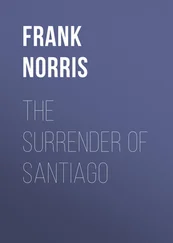Frank Norris - The Pit - A Story of Chicago
Здесь есть возможность читать онлайн «Frank Norris - The Pit - A Story of Chicago» — ознакомительный отрывок электронной книги совершенно бесплатно, а после прочтения отрывка купить полную версию. В некоторых случаях можно слушать аудио, скачать через торрент в формате fb2 и присутствует краткое содержание. Жанр: foreign_prose, literature_19, foreign_antique, на английском языке. Описание произведения, (предисловие) а так же отзывы посетителей доступны на портале библиотеки ЛибКат.
- Название:The Pit: A Story of Chicago
- Автор:
- Жанр:
- Год:неизвестен
- ISBN:нет данных
- Рейтинг книги:3 / 5. Голосов: 1
-
Избранное:Добавить в избранное
- Отзывы:
-
Ваша оценка:
- 60
- 1
- 2
- 3
- 4
- 5
The Pit: A Story of Chicago: краткое содержание, описание и аннотация
Предлагаем к чтению аннотацию, описание, краткое содержание или предисловие (зависит от того, что написал сам автор книги «The Pit: A Story of Chicago»). Если вы не нашли необходимую информацию о книге — напишите в комментариях, мы постараемся отыскать её.
The Pit: A Story of Chicago — читать онлайн ознакомительный отрывок
Ниже представлен текст книги, разбитый по страницам. Система сохранения места последней прочитанной страницы, позволяет с удобством читать онлайн бесплатно книгу «The Pit: A Story of Chicago», без необходимости каждый раз заново искать на чём Вы остановились. Поставьте закладку, и сможете в любой момент перейти на страницу, на которой закончили чтение.
Интервал:
Закладка:
It was growing late. At length Mrs. Cressler rose.
"My goodness, Laura, look at the time; and I've been keeping you up when you must be killed for sleep."
She took herself away, pausing at the doorway long enough to say:
"Do try to manage to take part in the play. J. made me promise that I would get you."
"Well, I think I can," Laura answered. "Only I'll have to see first how our new regime is going to run—the house I mean."
When Mrs. Cressler had gone Laura lost no time in getting to bed. But after she turned out the gas she remembered that she had not "covered" the fire, a custom that she still retained from the daily round of her life at Barrington. She did not light the gas again, but guided by the firelight, spread a shovelful of ashes over the top of the grate. Yet when she had done this, she still knelt there a moment, looking wide-eyed into the glow, thinking over the events of the last twenty-four hours. When all was said and done, she had, after all, found more in Chicago than the clash and trepidation of empire-making, more than the reverberation of the thunder of battle, more than the piping and choiring of sweet music.
First it had been Sheldon Corthell, quiet, persuasive, eloquent. Then Landry Court with his exuberance and extravagance and boyishness, and now—unexpectedly—behold, a new element had appeared—this other one, this man of the world, of affairs, mature, experienced, whom she hardly knew. It was charming she told herself, exciting. Life never had seemed half so delightful. Romantic, she felt Romance, unseen, intangible, at work all about her. And love, which of all things knowable was dearest to her, came to her unsought.
Her first aversion to the Great Grey City was fast disappearing. She saw it now in a kindlier aspect.
"I think," she said at last, as she still knelt before the fire, looking deep into the coals, absorbed, abstracted, "I think that I am going to be very happy here."
III
On a certain Monday morning, about a month later, Curtis Jadwin descended from his office in the Rookery Building, and turning southward, took his way toward the brokerage and commission office of Gretry, Converse and Co., on the ground floor of the Board of Trade Building, only a few steps away.
It was about nine o'clock; the weather was mild, the sun shone. La Salle Street swarmed with the multitudinous life that seethed about the doors of the innumerable offices of brokers and commission men of the neighbourhood. To the right, in the peristyle of the Illinois Trust Building, groups of clerks, of messengers, of brokers, of clients, and of depositors formed and broke incessantly. To the left, where the facade of the Board of Trade blocked the street, the activity was astonishing, and in and out of the swing doors of its entrance streamed an incessant tide of coming and going. All the life of the neighbourhood seemed to centre at this point—the entrance of the Board of Trade. Two currents that trended swiftly through La Salle and Jackson streets, and that fed, or were fed by, other tributaries that poured in through Fifth Avenue and through Clarke and Dearborn streets, met at this point—one setting in, the other out. The nearer the currents the greater their speed. Men—mere flotsam in the flood—as they turned into La Salle Street from Adams or from Monroe, or even from as far as Madison, seemed to accelerate their pace as they approached. At the Illinois Trust the walk became a stride, at the Rookery the stride was almost a trot. But at the corner of Jackson Street, the Board of Trade now merely the width of the street away, the trot became a run, and young men and boys, under the pretence of escaping the trucks and wagons of the cobbles, dashed across at a veritable gallop, flung themselves panting into the entrance of the Board, were engulfed in the turmoil of the spot, and disappeared with a sudden fillip into the gloom of the interior.
Often Jadwin had noted the scene, and, unimaginative though he was, had long since conceived the notion of some great, some resistless force within the Board of Trade Building that held the tide of the streets within its grip, alternately drawing it in and throwing it forth. Within there, a great whirlpool, a pit of roaring waters spun and thundered, sucking in the life tides of the city, sucking them in as into the mouth of some tremendous cloaca, the maw of some colossal sewer; then vomiting them forth again, spewing them up and out, only to catch them in the return eddy and suck them in afresh.
Thus it went, day after day. Endlessly, ceaselessly the Pit, enormous, thundering, sucked in and spewed out, sending the swirl of its mighty central eddy far out through the city's channels. Terrible at the centre, it was, at the circumference, gentle, insidious and persuasive, the send of the flowing so mild, that to embark upon it, yielding to the influence, was a pleasure that seemed all devoid of risk. But the circumference was not bounded by the city. All through the Northwest, all through the central world of the Wheat the set and whirl of that innermost Pit made itself felt; and it spread and spread and spread till grain in the elevators of Western Iowa moved and stirred and answered to its centripetal force, and men upon the streets of New York felt the mysterious tugging of its undertow engage their feet, embrace their bodies, overwhelm them, and carry them bewildered and unresisting back and downwards to the Pit itself.
Nor was the Pit's centrifugal power any less. Because of some sudden eddy spinning outward from the middle of its turmoil, a dozen bourses of continental Europe clamoured with panic, a dozen Old-World banks, firm as the established hills, trembled and vibrated. Because of an unexpected caprice in the swirling of the inner current, some far-distant channel suddenly dried, and the pinch of famine made itself felt among the vine dressers of Northern Italy, the coal miners of Western Prussia. Or another channel filled, and the starved moujik of the steppes, and the hunger-shrunken coolie of the Ganges' watershed fed suddenly fat and made thank offerings before ikon and idol.
There in the centre of the Nation, midmost of that continent that lay between the oceans of the New World and the Old, in the heart's heart of the affairs of men, roared and rumbled the Pit. It was as if the Wheat, Nourisher of the Nations, as it rolled gigantic and majestic in a vast flood from West to East, here, like a Niagara, finding its flow impeded, burst suddenly into the appalling fury of the Maelstrom, into the chaotic spasm of a world-force, a primeval energy, blood-brother of the earthquake and the glacier, raging and wrathful that its power should be braved by some pinch of human spawn that dared raise barriers across its courses.
Small wonder that Cressler laughed at the thought of cornering wheat, and even now as Jadwin crossed Jackson Street, on his way to his broker's office on the lower floor of the Board of Trade Building, he noted the ebb and flow that issued from its doors, and remembered the huge river of wheat that rolled through this place from the farms of Iowa and ranches of Dakota to the mills and bakeshops of Europe.
"There's something, perhaps, in what Charlie says," he said to himself. "Corner this stuff—my God!"
Gretry, Converse & Co. was the name of the brokerage firm that always handled Jadwin's rare speculative ventures. Converse was dead long since, but the firm still retained its original name. The house was as old and as well established as any on the Board of Trade. It had a reputation for conservatism, and was known more as a Bear than a Bull concern. It was immensely wealthy and immensely important. It discouraged the growth of a clientele of country customers, of small adventurers, knowing well that these were the first to go in a crash, unable to meet margin calls, and leaving to their brokers the responsibility of their disastrous trades. The large, powerful Bears were its friends, the Bears strong of grip, tenacious of jaw, capable of pulling down the strongest Bull. Thus the firm had no consideration for the "outsiders," the "public"—the Lambs. The Lambs! Such a herd, timid, innocent, feeble, as much out of place in La Salle Street as a puppy in a cage of panthers; the Lambs, whom Bull and Bear did not so much as condescend to notice, but who, in their mutual struggle of horn and claw, they crushed to death by the mere rolling of their bodies.
Читать дальшеИнтервал:
Закладка:
Похожие книги на «The Pit: A Story of Chicago»
Представляем Вашему вниманию похожие книги на «The Pit: A Story of Chicago» списком для выбора. Мы отобрали схожую по названию и смыслу литературу в надежде предоставить читателям больше вариантов отыскать новые, интересные, ещё непрочитанные произведения.
Обсуждение, отзывы о книге «The Pit: A Story of Chicago» и просто собственные мнения читателей. Оставьте ваши комментарии, напишите, что Вы думаете о произведении, его смысле или главных героях. Укажите что конкретно понравилось, а что нет, и почему Вы так считаете.












